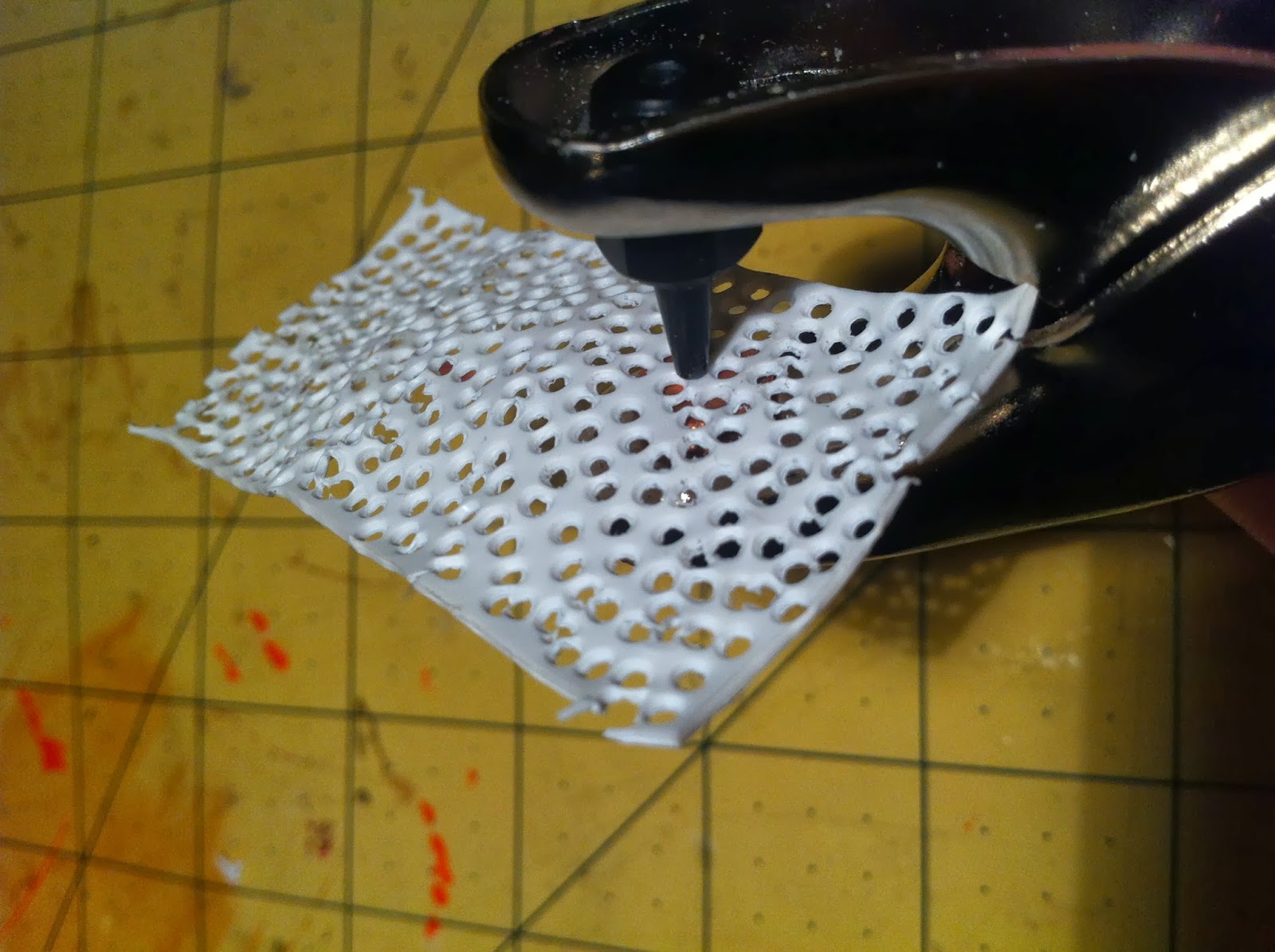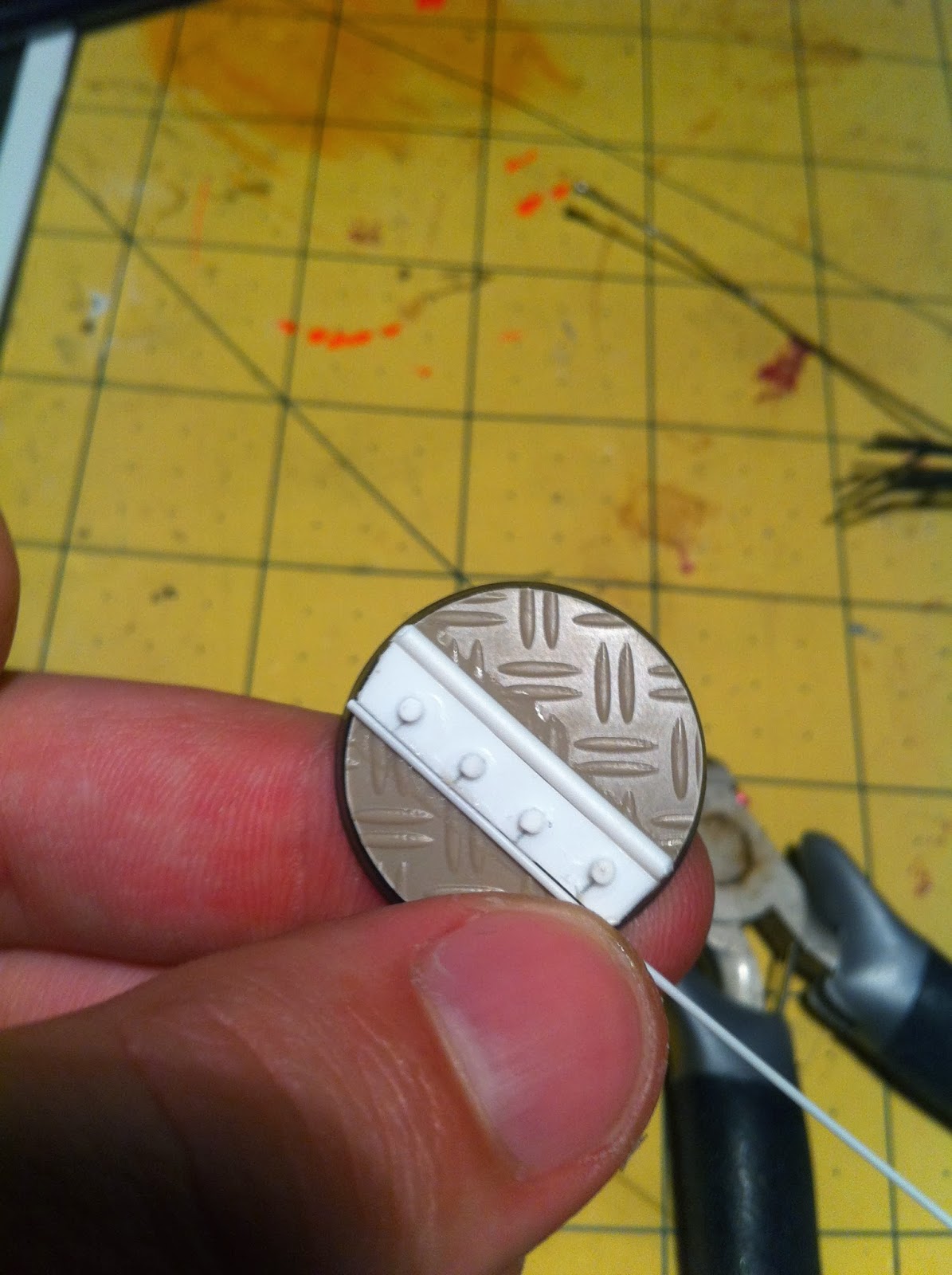
First off we need to know what tools and materials are needed to make these bases. The list is as follows:

1. Glue. Every hobbyist needs glue.
2. Hole punch. Mine is a 1mm punch perfect for rivets.
3. Compass cutting tool. Invaluable for getting a perfect circle.
4. Some plasticard of an appropriate thickness for rivets (I think mine was 1mm).
5. Pencil for marking lengths etc.
6. Metal ruler for measuring lengths.
7. Plasticard for detailing (again I think 1mm thick).
8. Deck plate style plasticard.
9. A knife.
10. Bases!
11. Clippers.
12. Cutting mat.

I start off by setting the compass cutter to the right width for
the base we are making. I score the circle into the deck plated
plasticard a few times before applying any real pressure to ensure it is
a perfect circle.

Now we have a perfect circle cut from the deck plated plasticard.
Sometimes you may need to go around the edge with a knife to tidy it up.

Now we glue the circle we just cut out of the deck plating
plasticard to the base. Now we are ready to go. If you were in a hurry
or wanted to keep the base simple you could stop here.

Next we measure our plasticard and then cut to size for the base.
You can keep this simple like above or make it more complicated if you
wish.

Make sure that you have trimmed the plasticard to size for the base so we get a nice and flush finish.

Now for the tedious bit... rivets. This is a dark art of modelling
apparently. Personally I get a beer and watch TV while doing this as it
is worth doing more than you need so you do not have to do any more


They are plastic rivets officer I swear!

Mark out regular intervals on the plasticard with your pencil and then commence the fiddly business of sticking the rivets on.

Now we are getting somewhere! With carrying thicknesses of
plasticard tubing you can detail out some piping and wiring on your
base.

Above is the finished base. As said throughout this tutorial you
can keep this really simple or make it more complicated with crazy
cabling or stepped bases.

No comments:
Post a Comment